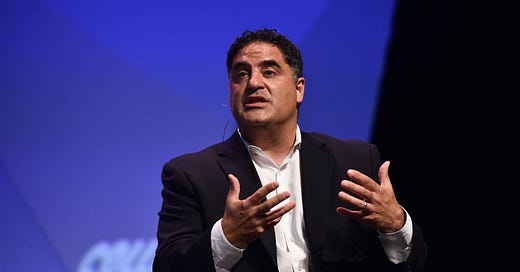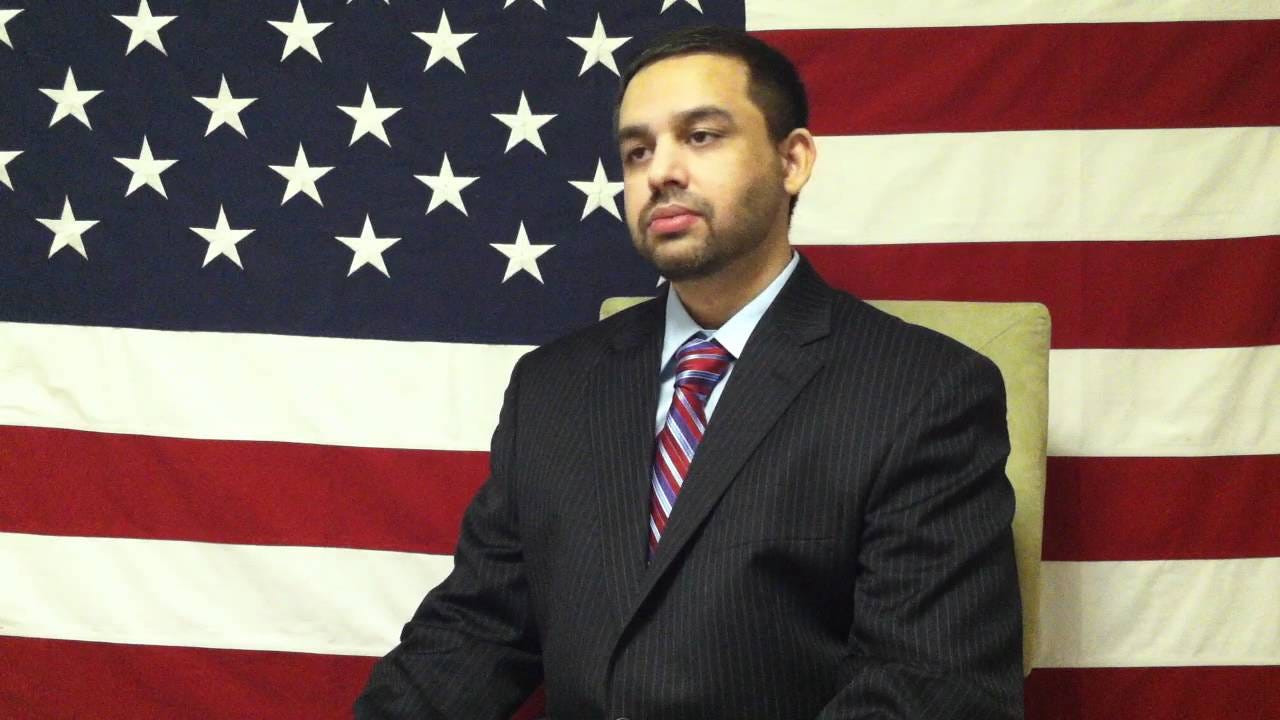Cenk Uygur and the 'Natural Born Citizen' Clause
Revisiting the Young Turk's 2024 presidential campaign
No Person except a natural born Citizen, or a Citizen of the United States, at the time of the Adoption of this Constitution, shall be eligible to the Office of President; neither shall any person be eligible to that Office who shall not have attained to the Age of thirty five Years, and been fourteen Years a Resident within the United States.”
Article 2, Section 1, Clause 5 (United States Constitution)
On March 6th of this year, Cenk Uygur withdrew his campaign for the White House. Best known as the co-founder of the progressive news site The Young Turks, Uygur launched his bid for President on the 11th of October last year, running as a Democrat. Proposing a left-wing, ‘anti-establishment’ alternative to Joe Biden, Uygur’s campaign can be seen as a continuation of his 2020 run for Congress, representing the 25th district of California.
Even if Uygur himself does not live in the district, he would still be eligible to hold Congressional seat that he failed to win. According to Article 1, Section 3 of the Constitution, “No Person shall be a Representative who shall not have attained to the Age of twenty five Years, and been seven Years a Citizen of the United States, and who shall not, when elected, be an Inhabitant of that State in which he shall be chosen.” As a naturalized citizen, who emigrated with his family from Turkey to the United States when he was eight, Uygur is not subject to this prohibition.
The case is not the same, however, when it comes to the Presidency. Under Article 2, the office of the President is not open to anyone except natural-born citizens of the United States. Neither will the office of the Vice-President, as the 12th Amendment indicates: “[N]o person constitutionally ineligible to the office of President shall be eligible to that of Vice-President of the United States.” This renders Uygur ineligible to be running for the White House to begin with. Indeed, this is the conclusion reached by the states of Nevada and New Hampshire - Uygur was also ineligible in the former because he submitted an altered form for the state ballot. Surprisingly, despite the Constitution’s prohibition, Uygur was placed on the ballots of the states of Minnesota, Oklahoma, Texas, Vermont, and Connecticut.
Although Cenk Uygur’s presidential campaign is short-lived, it has briefly opened up the debate on the difference between natural-born citizens and naturalized citizens of the United States. Uygur was not the first naturalized citizen to challenge the ‘natural born citizen’ clause in the Constitution. In 2012, Abdul Karim Hassan, a Guyanese-born American labor attorney based in Queens, New York, launched his bid for the White House. Hassan’s political platform, much like that of Ross Perot twenty years before, focuses on reducing the US national debt and budget deficit.
Unlike Perot, Hassan is not a natural-born citizen of the United States. Thus, in a significant way, his campaign for the White House was also used to raise awareness of the alleged unconstitutionality of the ‘natural born citizen’ clause. Citing the Due Process clause of the 5th amendment and the Equal Protection clause of the 14th Amendment, Hassan claims that the clause violates his rights based on citizenship status. In addition to the campaign, Hassan filed lawsuits across several states in order to get his case heard. Unfortunately for him, he did not win in any of the cases. In particular, the judicial panel of the United States Court of Appeals for the Second Circuit ruled that Hassan "failed to allege with any specificity how the natural born citizen requirement has already injured him or is likely to injure him in the immediate future."
Six years before Hassan’s campaign, the constitutional challenge to the ‘natural born citizen’ clause was challenged in an article of the UIC Law Review, titled ‘Limiting the Presidency to Natural Born Citizens Violates Due Process.’ Authored by Paul A. Clark, the article shares the same legal basis as Hasan’s challenge - the Due Process clause of the 5th Amendment and the Equal Protection clause of the 14th Amendment. Clark cites the Supreme Court case Schneider v. Rusk (1964) which ruled that “discrimination between citizens based on whether or not they are native born is unconstitutional” based on the 5th Amendment. “Forbidding naturalized citizens from being president or vice president,” Clark concludes. “is a form of discrimination that limits their options and treats them as second-class citizens.” However, the majority opinion for Schneider, drafted by Justice Douglas, explicitly stated that “[t]he only difference drawn by the Constitution is that only the 'natural born' citizen is eligible to be President.”
The Equal Protection clause, which states that “[a]ll persons born or naturalized in the United States… are citizens of the United States” and are therefore not to be deprived of “life, liberty, or property…, due process of law [and] the equal protection of the laws.” Thus, the 14th Amendment affirms and expands upon the 5th. Clark cites the Supreme Court case Adarand Constructors, Inc. v. Peña (1995), in which Justice O’Connor stated in the majority opinion that the “equal protection obligations imposed by the Fifth and the Fourteenth Amendments” are “indistinguishable.”
In the fiscal year 2023, U.S. Citizenship and Immigration Services counted 878,500 new citizens via the naturalization process. The site also states that “Naturalizations in fiscal years 2022 and 2023 made up nearly a quarter (24%) of all naturalizations over the past decade.” As the population of naturalized citizens in the United States grow, the constitutional challenge to the ‘natural born citizen’ clause in Article 2 will likely be brought up again in the future. Cenk Uygur, who undertook his campaign as a standard progressive challenge to President Biden, failed to seize upon his status as a naturalized citizen to bring forth this important issue. As such, his campaign ended as it begun: not with a bang but a whimper.





